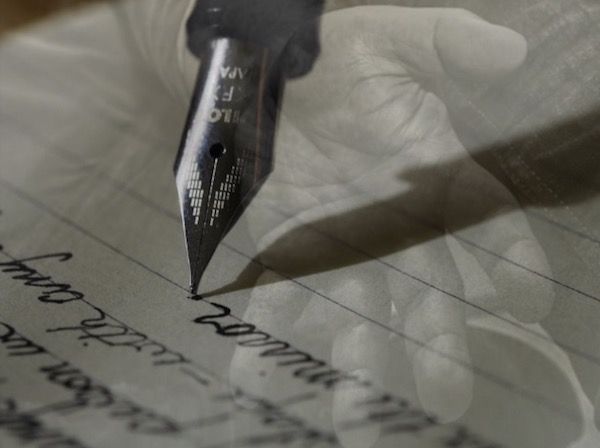

An islander who couldn’t sign his own will because his hands were paralysed has inspired a dramatic change to how Jersey wills are handled.
Anthony ‘Tony’ Yves Le Couilliard was diagnosed with a tumour on his spinal chord in 2010.
It sadly led to him being unable to move his hands, which meant that he lost his ability to write.
At that point in time, Mr Le Couilliard had not made a will. According to his widow, Nicki, “he never believed he wouldn’t survive it” and was “horrified” that anyone would suggest doing so.
But as time moved on, and Mr Le Couilliard’s health deteriorated, he finally decided to record his wishes. Unfortunately, his hands were completely paralysed by this point, and he was unable to sign the document.

Pictured: Mr Le Couilliard's will was deemed invalid and he technically died intestate - because he wasn't able to sign it himself.
While it was common practice in the UK and Guernsey to allow someone to sign on his behalf, the courts in Jersey could not accept the validity of his will, and Mr Le Couilliard technically died intestate (without a will) in 2011.
Mr Le Couilliard’s case sparked a major review by local law firm Collas Crill, who hired a professor to undertake a study of how people with physical, but not mental incapacities could make wills. It ended up highlighting a major deficiency in the island’s succession laws – that they were far out of step with the European Convention of Human Rights (ECHR).
Mr Le Couilliard's widow subsequently vowed to take up the battle to put things right.
"I know that Tony would want me to continue the fight for the right for men and women like him who, for whatever reason, cannot hold a pen to be allowed to make a will under Jersey law and to have their last wishes adhered to just like every other able-bodied person," Mrs Le Couilliard commented at the time.
Now that fight may have finally come to an end – anyone unable to sign either a will, power of attorney or affidavit due to a physical disability will be able to do so in another way, if the States Assembly agrees.
A draft law was published yesterday, which will be debated by the island’s politicians on 6 March this year.
It was put forward following the recommendation of the States Legislation Advisory Panel, a group of States Members responsible for overseeing laws that do not fall under the responsibility of any particular Minister. It includes Deputies Richard Renouf, Steve Luce, Robert Johnson and Connétable of St Mary Juliette Gallichan among its membership, with Senator Sir Philip Bailhache as Chairman.
Pictured: Senator Sir Philip Bailhache is Chairman of the States Legislation Advisory Panel, which recommended the change.
Senator Bailhache described the move as “a positive development for our community.”
“It is highly important that no person in Jersey is prevented from executing any of the documents covered by this Draft Law purely due to physical incapacity. I am pleased, therefore, that the Legislation Advisory Panel have been able to respond to the issue highlighted by both the Royal Court judgement and the independent report commissioned by Collas Crill… I hope States Members will support the Draft Law when it comes before the Assembly,” he said.
Comments
Comments on this story express the views of the commentator only, not Bailiwick Publishing. We are unable to guarantee the accuracy of any of those comments.